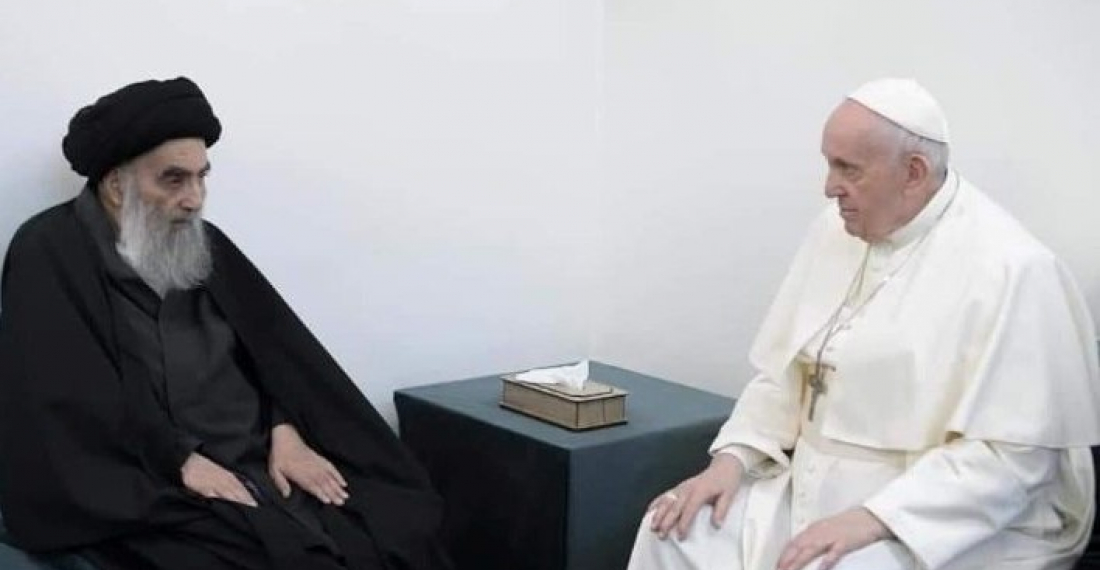Pope Francis met this Saturday morning in Najaf with Grand Ayatollah Sayyid Ali Al-Husayni Al-Sistani in a visit which stressed the importance of friendship, mutual respect and dialogue between religious communities.
read more on the historic visit of Pope Francis in Iraq here
According to a statement from the Holy See Press Office, during the courtesy visit, which lasted about forty-five minutes, “the Holy Father stressed the importance of cooperation and friendship between religious communities for contributing – through the cultivation of mutual respect and dialogue – to the good of Iraq, the region and the entire human family.”
The communique also says, “The meeting was an occasion for the Pope to thank Grand Ayatollah al-Sistani for speaking up – together with the Shiite community – in defence of those most vulnerable and persecuted amid the violence and great hardships of recent years, and for affirming the sacredness of human life and the importance of the unity of the Iraqi people.”
In taking leave of the Grand Ayatollah, the Holy Father stated that he continues to pray that God, the Creator of all, will grant a future of peace and fraternity for the beloved land of Iraq, for the Middle East and for the whole world.







